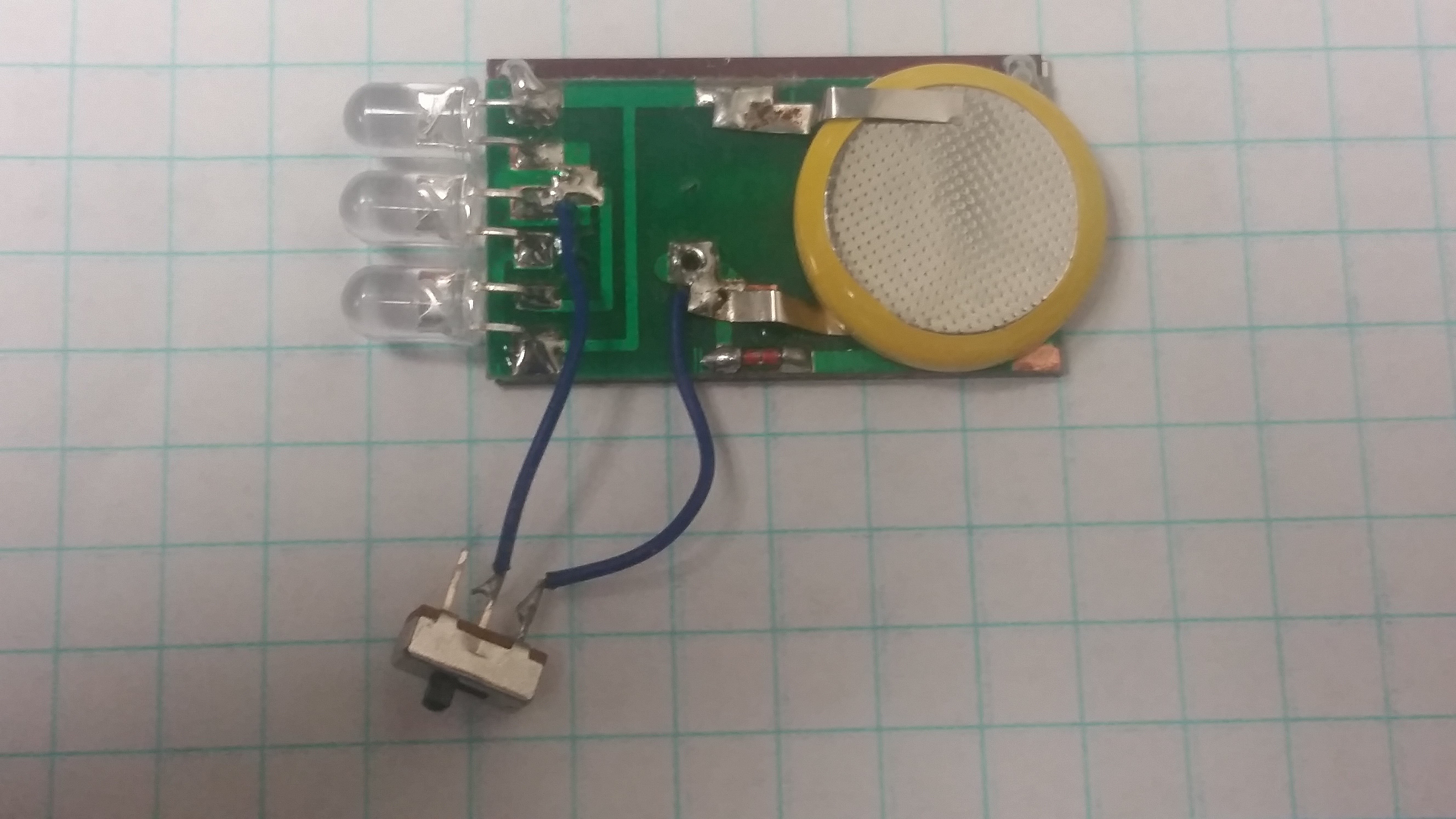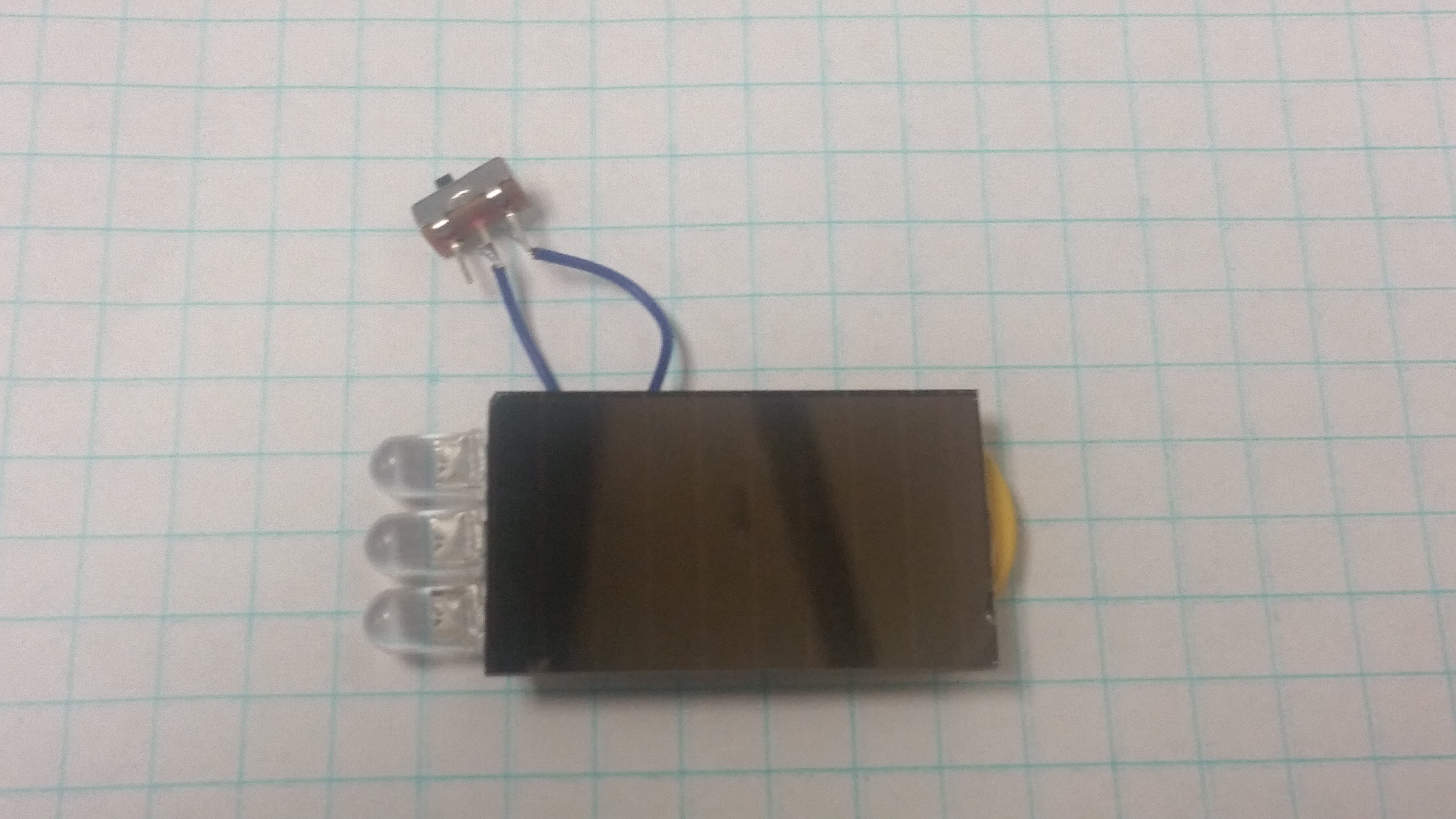I am starting this project after opening up a $3 flashlight to find that it isn't complete garbage inside.


While extremely minimal, it has an actual solar panel (probably amorphous) and a LIR2032 rechargeable coin cell battery. While the charging circuit is nothing more that a single diode to reduce the voltage a bit and prevent the battery from pushing current back through the solar cell in darkness, several discharge cycles without failure have convinced me that I could power something other than LEDs with the basic setup. I am also taking a similar approach with component usage, trying to keep everything as simple as possible.
My plan for the parts is simple: create a watch. While a lot of watch projects use overrated things called "screens", I will instead be using only 8 LEDs to display all the information I need. The simplest way of displaying information, especially times, would be to display the values in binary. For instance, after waking the watch up it could display the hour of the day in 24-hour format, wait a moment, and then display the minute value for a few second more. I imagine that that will make up the most basic level of it's functionality. While this would require only 5 LEDs, I would far rather go up to a power of 2 and increase my options for alternatives.
One such alternative would be a POV display. While such a solution would be clumsy for constant usage, I may find myself wanting to display more complex graphics. By waving the watch arm, a user could see more complex images without a larger array of LEDs or a screen.
The input methods for the watch are also going to be minimalistic. I am currently thinking that three or four buttons would be enough for most of the things I would want to include, but more could be useful. At least one of these would have to be mechanical as to allow the microprocessor to go into sleep mode after disuse while still allowing the user to walk it up using an interrupt. Beyond mechanical buttons or capacitive sensing pads, I don't expect to include any obvious user inputs. However, it might be possible to include a gyroscope, accelerometer or even a "rattle can" to integrate motion controls. Of course, I would have to be hard pressed to decide that such additions would be worth the PCB space.
It should also be noted that I want this to be useful for camping and emergency events, thus the importance of reliable operation under solar power and an interest in including various tools. For example, I have long thought that a portable Arduino would be great tool, allowing me to hack on the go. For instance, it would be trivial to create a very basic multimeter, one that could measure some low DC voltages, and check capacitors and resistors. Beyond tools like that, I could also include a flashlight, compass, thermometer, hydrometer, laser pointer, and pulse meter. These are just early ideas, but I imagine that many of them could end up on the watch.
Discussions
Become a Hackaday.io Member
Create an account to leave a comment. Already have an account? Log In.